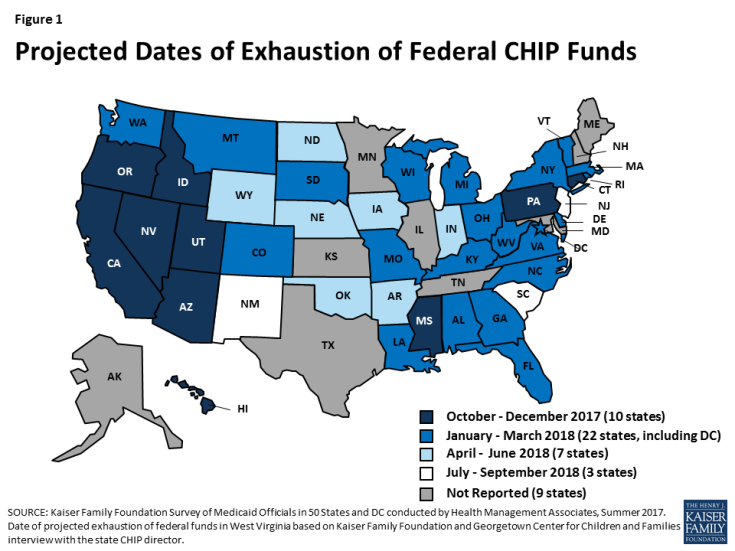Funding for the Children Health Insurance Program (CHIP), which covers 8.9 million children, expires Saturday because lawmakers were too busy trying to repeal-and-replace the Affordable Care Act (ACA).
CHIP provides low-cost health insurance to children in families that earn too much money to qualify for Medicaid. Enacted in 1997, CHIP is a companion program to Medicaid, where states had the option to set up an independent CHIP program or extend Medicaid eligibility to children up to 18 years old. With Medicaid and CHIP filling the coverage gaps, 95 percent of children have health coverage.
Extending Medicaid eligibility and in turn spending more federal dollars was not always politically polarizing. The CHIP program was forged by a bipartisan group in the Senate Finance Committee; Sens. Orrin Hatch (R-UT) and Edward Kennedy (D-MA) were the legislation’s lead sponsors. Twenty years later, Hatch used his position as chairman of the Senate Finance Committee to prop up the Graham-Cassidy bill, the last iteration of ACA repeal-and-replace, by holding a hearing.
States do not run out of CHIP funding on Saturday for reasons that have to do with the way CHIP is set up and budgeted for. Thirty-two states will exhaust federal funds by the end of March 2018, but at least 10 states anticipate a sunset of federal funds as early as October, according to the Kaiser Family Foundation:

At least 34 states assumed continued federal CHIP funding in their 2018 state budget. Because state budgets have already been passed, state governors and legislators will need to think of contingency plans if Congress does not pass a bill by October.
Utah, Hatch’s home state, is the first state to have been forced to amend its CHIP program — thanks in large part to its own senator’s focus on performed politics to repeal and replace the ACA.
On September 15, Utah’s Department of Health filed a formal request to the Centers for Medicare and Medicaid Services (CMS), a division within the Department of Health & Human Services (HHS), to amend their state’s program. The amendment would “eliminate eligibility or services” under CHIP if Congress fail to appropriate sufficient funding to continue the program. The amendment’s effective date is October 1. The state estimates having enough funds to continue providing services through December.
Utah Department of Health letter to the Department of Health & Human Services by ThinkProgress on Scribd
Joan Alker, executive director of Georgetown University’s Center for Children and Families — who first reported Utah’s request — said it’s the first state to submit such a formal request. (Minnesota did send a letter to CMS two weeks ago that it would take “extraordinary measures” to continue coverage through October.)
Utah Lieutenant Governor Spencer Cox (R) took to Twitter and said the contingency plan was a result from the “paralysis” in Washington, D.C.
This is contingency resulting from paralysis in DC. We fully support re-authorization of CHIP but have to prepare in case not re-authorized.
— Spencer Cox (@SpencerJCox) September 28, 2017
An outline of a CHIP reauthorization bill is already in place. Prior to the resurrection of a G.O.P. health bill, Sens. Orrin Hatch (R-UT) and Ron Wyden (D-OR), the chair and ranking member of the Senate Finance Committee respectively, announced a bipartisan deal to keep CHIP funded for five years.
The House Committee on Energy and Commerce announced Thursday that it will markup a bill to extend federal funding to CHIP.
This isn’t the first time CHIP has fell victim to political game. In 2007, President George W. Bush tried to use CHIP’s popularity to attach a partisan change to tax code for health insurance to the authorization bill, seeking to replace a tax break for employer-based insurance with a tax deduction. Congress ultimately passed a CHIP reauthorization bill without the president’s legislation. Bush vetoed the CHIP reauthorization bill, and while a bipartisan group of senators rallied Congress to override the veto — Sen. Hatch said then it’s because it was “the morally right thing to do” — they were ultimately unsuccessful.
This story has been updated to clarify when Utah estimates it will run out of CHIP funding.
